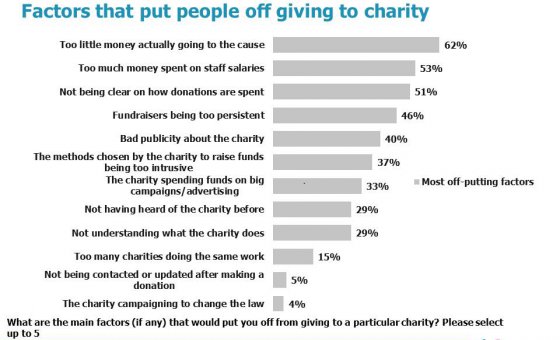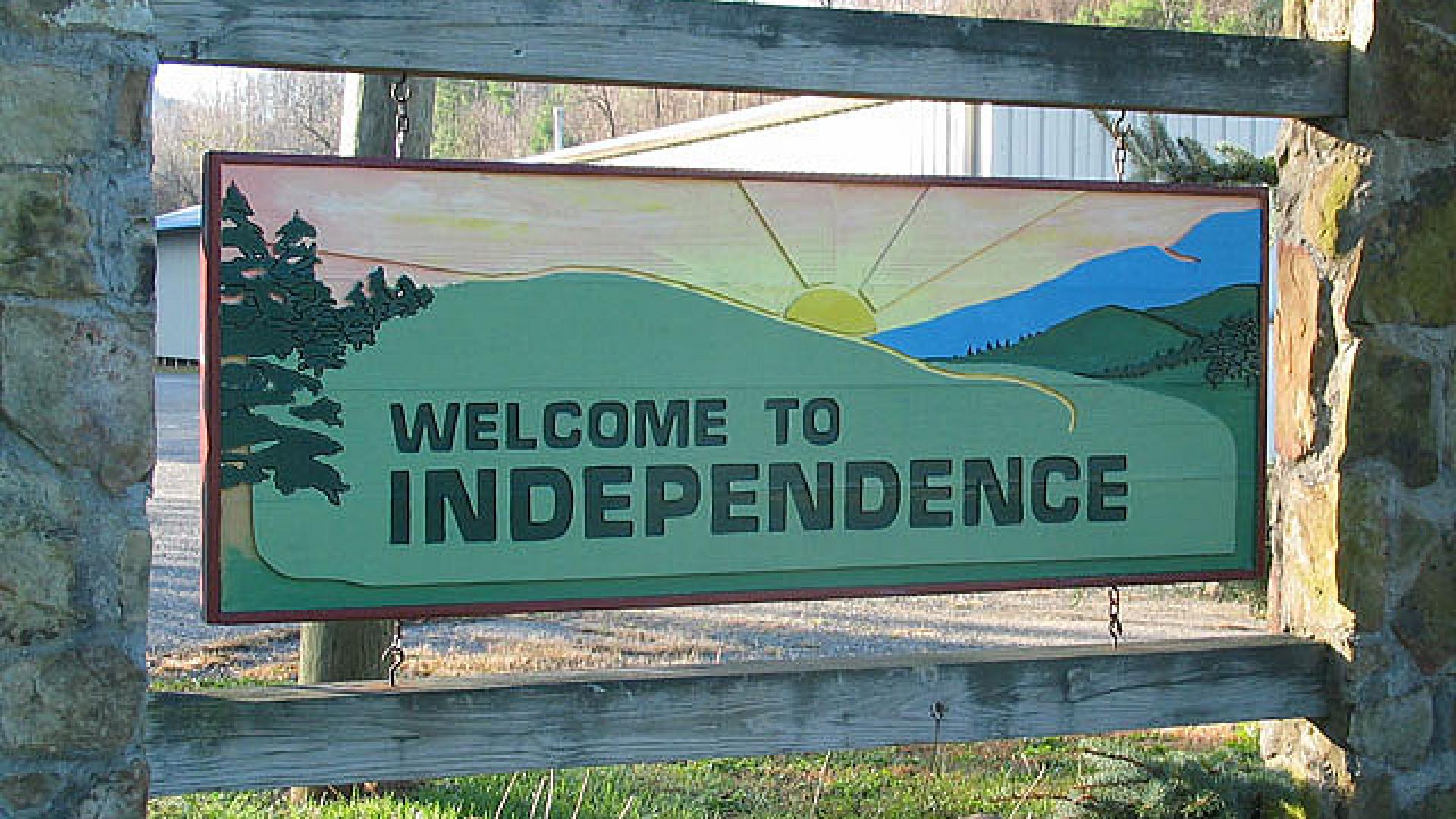Charities worry quite a lot about their independence. However, they tend to worry about independence from government and interference from politicians. What our research shows is that charities are hemmed in on all sides by the perceptions and stereotypes of stakeholders. Indeed, I would go so far as to say that independence is a mirage; charities will always have a multitude of stakeholder ‘prejudices’ to take into account, rather than simply doing what is best for beneficiaries.
Stakeholders cover a breadth of people and perspectives including donors, politicians, the public, staff, funders and journalists to name but a few.
The public have a range of concerns that they say hold them back from giving to charities. As the chart shows, top of their list of concerns is how much money actually goes to the cause, which 62% of the public say might put them off. Next on the list of concerns is the amount spent on staff salaries (53% of people), followed by not being clear on how donations are spent (51%).

You can download this chart on the right hand side of this screen for a closer look.
So how do these concerns impact on a charity’s independence?
Well let’s say a charity decides that it wants to grow its fundraised income, or that it needs to pay better salaries in order to get a higher calibre of staff. These are two things that could put off potential donors. It would be fairly easy to put together a case arguing that increased income and higher salaries are good for the charity in the medium and long term. The difficulty is that the public may not see it that way.
So a charity may be unable to invest in fundraising or staff salaries in the way that it wants because of concerns over how that will be seen by donors. The ability of a charity to do the ‘right thing’, to be free to make the right decisions for beneficiaries, is constrained.
CEO salaries are a specific example of how public attitudes constrain charities. The public doesn’t think that charity CEOs (or any other employee) should be paid much. Indeed, our research shows that less than half the population (45%) thinks that charity CEOs should be paid at all and of those, only 10% think that charity CEOs should ‘definitely be paid’.
Politicians are another group whose attitudes impinge on the ability of charities to operate freely. Our research with politicians shows that MPs are wary of charities being ‘political’. When we asked 157 MPs about what it means to them for a charity to ‘be political’, 78% of Conservative MPs said it was a negative thing, along with 23% of Labour MPs and 38% of Lib Dems. No Conservative MPs said charities ‘being political’ was positive, while just 16% of Labour MPs and 8% of Lib Dems did.
The public were much more relaxed about campaigning. More than half (58%) of the public agreed ‘charities should be able to campaign to change laws and government policies relevant to their work’, while only 10% disagreed. Just 4% said that a charity campaigning to change the law put them off giving, as shown in the chart.
These attitudes to campaigning show part of the dilemma in maintaining independence for charities. While the public are fairly relaxed about campaigning, many MPs are not.
Independence is not a one-dimensional concept for charities. It is a complex, multi-faceted beast which can only be achieved by walking the tightrope between the complex needs and attitudes of stakeholders, whilst always keeping an eye on the goal of doing the very best for beneficiaries.

